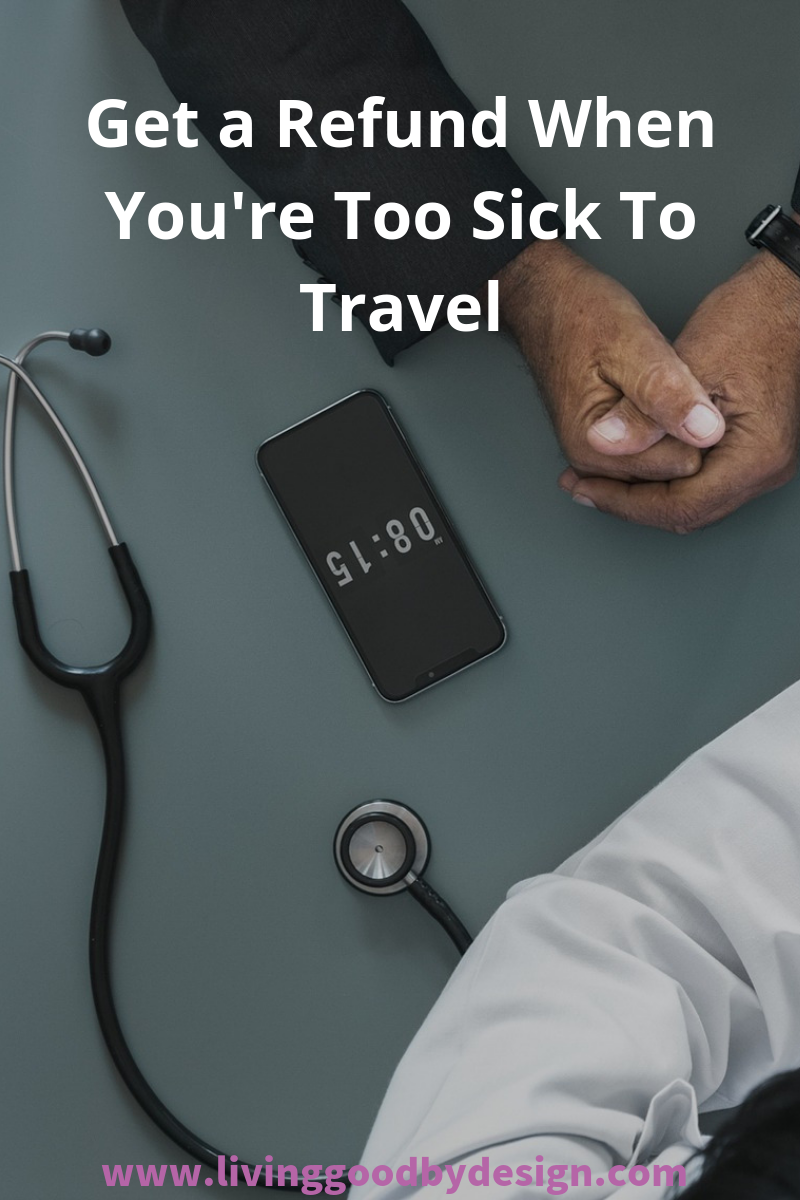
Step 1: How sick are you?
Our blog “Traveling and Have a Cold?” stated that according to the Centers for Disease Control and Prevention (CDC), you should not fly when you have a fever of 100 degrees Fahrenheit or higher, have severe cough and difficulty breathing or have some kind of stomach sickness.
It’s also not a good idea to fly if you have a contagious illness, including a respiratory disease or infection. Why you ask? Pressure changes make sinus and ear infections incredibly painful, and dry cabin air can further irritate upper respiratory conditions. The CDC also warns against travel if you’ve recently had surgery, a heart attack, or a stroke—these can increase your risk.
There’s also the risk that you will contaminate fellow travelers. The longer the flight, the more likely you will infect others.
These are all good reasons to plead your case when looking to get your money back.
Step 2: Call off your trip
If you already know that you will not make your planned trip then you should cancel your flight before your scheduled departure time. You have better chances of getting credit for future travel if you cancel ahead of time before your departure date. However, if you are unable to cancel 24 hours in advance— don’t give up hope just yet!
Step 3: Read the Fine Print
Read and review the fare rules. These are usually outlined somewhere in the booking process. It will describe exactly what is (and isn’t) allowed when it comes to canceling. If the fare rules state that you can cancel and can be entitled to a refund, having a copy of the fare rules will come particularly handy if an airline tells you it can’t refund your fare or waive a fee.
Step 4: Call your doctor before you contact your airlines
Most domestic airlines will not alow you to make changes to your flight without penalty when you’re sick. But giving the airline’s customer relations department a call is still worth the effort. Some airlines deal with non-refundable tickets on a case by case basis and are known to make exceptions. For instance, at Southwest, known for their no change fees, customer relations can consider, on a case by case basis, refunds to a non-refundable ticket with documentation from a doctor as an exception to their fare rules. Delta requires doctor’s documentation as well. Delta’s team works with passengers individually and empowers their customer to make the right decision when deciding what to do when faced with choosing between flying and not flying when sick. American Airlines also does the same thing where their customer relations reviews refunds on a case by case basis.
Step 5: Insure the Unknown
If you know that you can’t get out of paying a fee or a refund, consider buying travel insurance especially for an expensive trip. The right plan will reimburse you when you get sick and unable to make the trip. Just remember to double check and know what you are purchasing before you buy. Don’t know where to look for travel insurance? Go to Squaremouth, a site where you can search, compare and purchase travel insurance.





[…] you decide you’re too sick to fly, read How to Get a Refund When You Are Too Sick to Fly and recoup your money […]